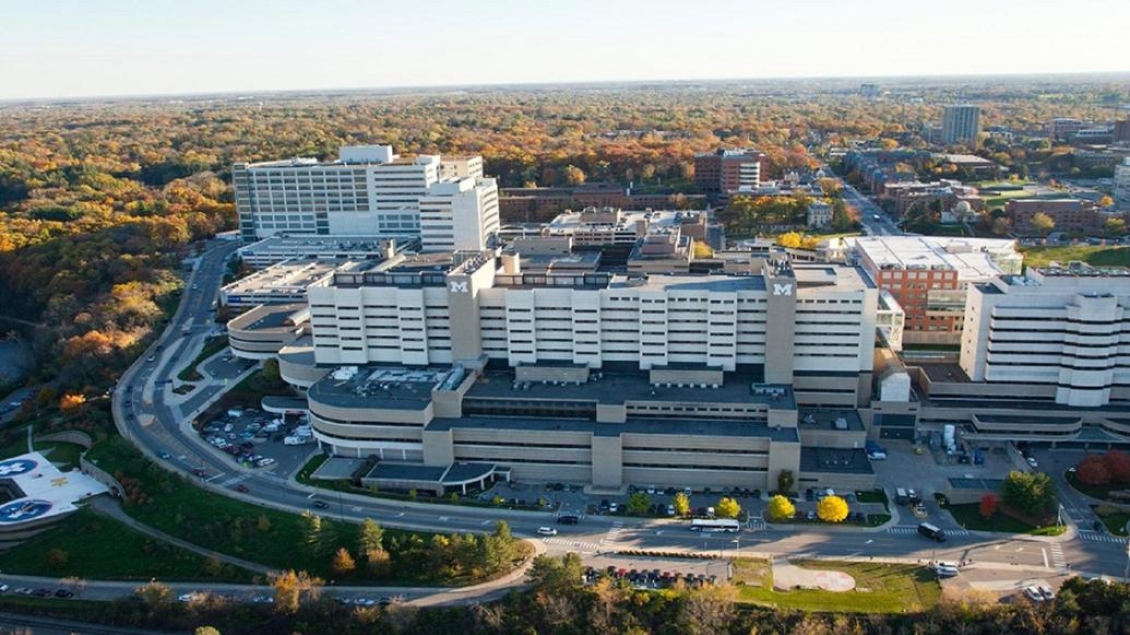
The U-M Medical School Lupus Program is home to world-class patient care, research endeavors, and education and training opportunities. Our program, led by W. Joseph McCune, MD, consists of a multidisciplinary group of researchers and health care providers, including rheumatologists, nephrologists, pulmonologists, dermatologists, hematologists, psychiatrists and high-risk obstetricians and gynecologists. Since before our program was officially created in 2007, our shared goal has always been to find improved diagnosis, treatment and management options for patients with lupus.
Our comprehensive patient care environment allows us to make expeditious appointments with other specialist physicians, assist in coordinating medical testing, and to draw blood for laboratory evaluation on-site and off-site. Our outpatient facility is designed and administered to ensure personal, professional, and attentive care for patients with lupus and related autoimmune diseases. Patients will find our staff receptive, knowledgeable, and friendly.
Our researchers are heavily involved in basic research and clinical trials. The program facilitates advances in the treatment of lupus by fostering continued development of an interdisciplinary group of physicians and physician scientist researchers focused on SLE. The Lupus Program and Michigan Lupus Cohort staff facilitates the development and submission of research grants and contracts to support the program’s objectives.
Along with providing excellent patient care and performing cutting-edge research, education is one of our primary objectives. Our program proudly serves as a resource for the training of physicians and medical students to better serve our community.
300 North Ingalls Street, SPC 5422
Ann Arbor, MI 48109-5422
Non-patient related calls only
Lupus is an autoimmune disorder, meaning that the body’s own immune system can harm healthy cells and tissues. This disorder can affect many body parts, including the joints, skin, kidneys, heart, blood vessels, lungs, and brain. Lupus patients can experience periods of wellness (remissions) and periods of active disease (flares). Permanent organ damage may result from both flares and the side effects of treatments. The causes of lupus are unknown.
The program is dedicated to learning more about what causes lupus, how flares can be reduced or prevented, how to predict disease progression and activity, and how to prevent permanent organ damage. Finding new prevention and treatment strategies is dependent on learning more about the development of and risk factors for lupus.
The U-M Medical School Lupus Program has a strong program in basic science research. Areas of research include:
- Identifying genetic and epigenetic abnormalities in lupus patients that predispose them to the disease
- T cell abnormalities in lupus
- Abnormal cell death and the development of lupus
- Abnormalities in the interactions of different cells of the immune system that might predispose lupus patients to the disease
- Mechanisms by which lupus patients develop accelerated heart disease
- Mechanisms of kidney damage in lupus
- Role of dendritic cells and neutrophils in lupus
- Abnormal signal transduction in lupus cells
Clinical trials are a type of research study design to test new treatments or diagnostic tests in those affected by a specific disease or condition. They help achieve a better understanding of the disease that is being investigated and determine the effectiveness and safety of new treatments.
Our group actively participates in different clinical trials giving our patients the opportunity to receive promising new treatments or participate in new diagnostic procedures. Participation is completely voluntary.
The Lupus Program consists of a multidisciplinary group of health care professionals. In addition to our rheumatologists, the program includes faculty from dermatology, hematology, nephrology, obstetrics and gynecology, psychiatry and pulmonology.

Professor of Internal Medicine

Professor of Internal Medicine
- Nada Abdulaziz, MBBS (Rheumatology)
- Kevin Chan, MD (Pulmonology)
- Puneet Garg, MD (Nephrology)
- Rachel Glick, MD (Psychiatry)
- Yolanda Helfrich, MD (Dermatology)
- J. Michelle Kahlenberg, MD, PhD (Rheumatology)
- Wendy Marder, MD (Rheumatology)
- Panduranga Rao, MD, DNB, MS (Nephrology)
- Emily Somers, PhD, ScM (Rheumatology)
- Amber Young, MD (Rheumatology)
For Patients
- For our clinic information and more, please visit the Lupus Program section on UofMHealth.org
- Michigan Medicine Patient and Visitor Guide
For Physicians
- Michigan Lupus Epidemiology and Surveillance Program Longitudinal Cohort (MiLES) - Maintains the MiLES Longitudinal Cohort & Biobank, including lupus cases from the southeast Michigan surveillance registry as well as population-based controls
- M-Line - for referrals and consultation information
Due to the generosity of our many strong supporters, the Lupus Program is able to continue its efforts to learn more about what causes lupus and discover new treatment options. Our donors are critical to moving lupus research forward.
How to Donate
To make a gift, please visit the below online giving pages:
Watch a video featuring our Lupus Program team of experts, who are committed to providing excellence in patient care and conducting cutting-edge research.


